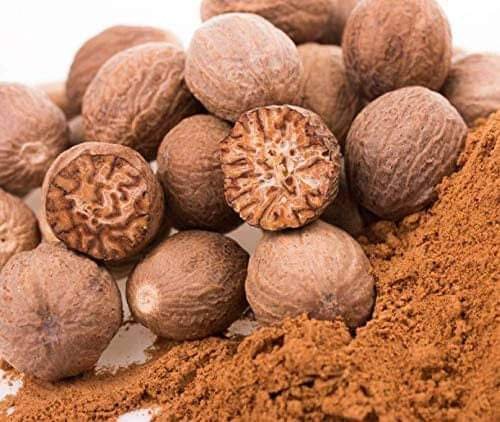
Common Foods That Contain Natural Poisons That Can Cause Death Or Harm Your Health
By The Evangelist edition
November 16, 2022
According to the World Health Organization (WHO), certain naturally occurring toxins are created in food as a type of defense mechanism to protect plants from animal infestation and consumption. These toxins can be found in a variety of foods. These naturally occurring toxins are the root cause of a wide range of adverse health effects and have the potential to pose serious health risks to both humans and livestock. One of the adverse health effects caused by these naturally occurring toxins is acute poisoning.
Acute poisoning can cause a wide range of symptoms, including allergic reactions, severe stomachaches and diarrhea, and even death in the most severe cases. Their cumulative negative effects on health can have an adverse effect on various body systems, such as the immune, reproductive, or nervous systems, and they can also cause the formation and progression of cancer cells. Therefore, even though these naturally occurring toxins do not cause any harm to the plants themselves, other organisms, including humans, can become ill from consuming them.
Unfortunately, a large number of the common foods that we do consume contain, to varying degrees, particular naturally occurring toxins, which means that they have the potential to be harmful to one’s health. In accordance with the information provided by Christine Mikstas of WebMD, the following are examples of common foods that include natural toxins or poisons:
1. Apple seeds
The apple is widely acknowledged to be among the most nutrient-dense foods on the entire planet; consequently, the proverbial “an apple a day keeps the doctor away” refers to this fruit. Apple seeds, despite having what appears to be an impressive nutrient profile, are not as healthy as the apple fruit itself because they contain cyanide, a potent toxin that can cause rapid breathing, seizures, and possibly even death, even in small doses. If you happen to swallow an apple seed by accident, you won’t get sick from the cyanide because they have a coating that prevents it from being absorbed by your body.
2. Nutmeg
Nutmeg is widely regarded as one of the most effective ways to impart a pleasant, nutty flavor to a wide variety of baked goods that are commonly available. According to WebMD, however, its consumption—especially in large amounts—should be monitored closely because it has the potential to cause major issues within the body. This is due to the fact that it contains myristicin, an oil that has been discovered to cause undesirable and adverse health effects such as hallucinations, drowsiness, dizziness, confusion, and seizures. The reason for this is that it contains myristicin.
3. Green potatoes
Potatoes are widely regarded as a nutritious food and are regarded as one of the top dietary sources for a wide variety of important nutrients. However, not all potatoes are beneficial in this way because a poisonous chemical called glycoalkaloid can be found in the leaves, sprouts, and underground stems (tubers) of potatoes. When potatoes are exposed to light, damaged, or allowed to mature, a material that is known to be hazardous will cause the potatoes to turn green. Consuming potatoes that are high in glycoalkaloid content can result in a variety of unpleasant side effects, including nausea, diarrhoea, disorientation, migraines, and even death.
4. Raw kidney beans
Consuming kidney beans is one of the most effective ways to fulfill the mineral and vitamin needs of your body. However, treating them properly requires extreme caution, particularly when they are in their unprocessed state. Raw red kidney beans, according to Christine Mikstas of WebMD, have the largest concentration of lectins, which are a type of toxin that can cause stomach aches, make you feel nauseated or vomit, and give you diarrhea. Lectins can also cause an allergic reaction in some people. It just takes four or five kidney beans in their raw form to elicit these effects; therefore, it is recommended to cook them first.
5. Rhubarb leaves
It is safe to consume the stalk of the rhubarb plant, but the leaves should be avoided at all costs since they contain oxalic acid, a naturally occurring toxin that binds to calcium and makes it more difficult for your body to absorb it. Eating the stem of the rhubarb plant is not a bad idea. As a consequence of this, your bones are harmed and are unable to develop as they should. As a consequence of this, you are at an increased risk for experiencing serious health effects such as kidney stones, issues with blood clotting, vomiting, diarrhea, and coma.
6. Bitter almonds
Although it is known that both bitter and sweet almonds contain amygdalin, a chemical molecule that has the potential to transform into cyanide, bitter almonds are thought to have the highest levels of this potentially harmful chemical compound. Bitter almonds, on the other hand, have been known to produce stomach cramps, nausea, and diarrhea in people who eat them. Consuming sweet almonds, on the other hand, will not have any negative effects on your body, but eating bitter almonds could.
7. Raw cashews
The nutrient profile of cashew nuts is quite excellent, which is fitting given that they are one of the healthiest nuts in the world. Consuming raw cashew nuts, on the other hand, may be detrimental to your health due to the presence of a natural toxin known as urushiol. This toxin is eliminated from the shell of the cashew when it is prepared. The same urushiol toxin that is present in poison ivy can also be found in poison oak, and both of these toxins can produce allergic reactions, some of which can be severe enough to result in death.
8. Mushrooms
Another rather healthy dietary item that should be monitored closely is mushroom consumption. There are several wild mushroom kinds that should be avoided at all costs. Both the death cap (Amanita phalloides) and the destroying angel are types of the Amanita genus (Amanita virosa). According to Healthline, ingesting certain wild mushroom types can result in abdominal pain, vomiting, diarrhea, severe thirst, dehydration, liver failure, coma, and even death.
9. Mangoes
According to Christine Mikstas of WebMD, the skin, bark, and leaves of mangoes contain urushiol, a natural toxin that is also present in poison ivy. This is the same substance that is found in raw cashews. In the event that you are allergic to the toxin, you may have a severe reaction consisting of swelling, a rash, and even difficulty breathing if you come into contact with it. (Opera News)






